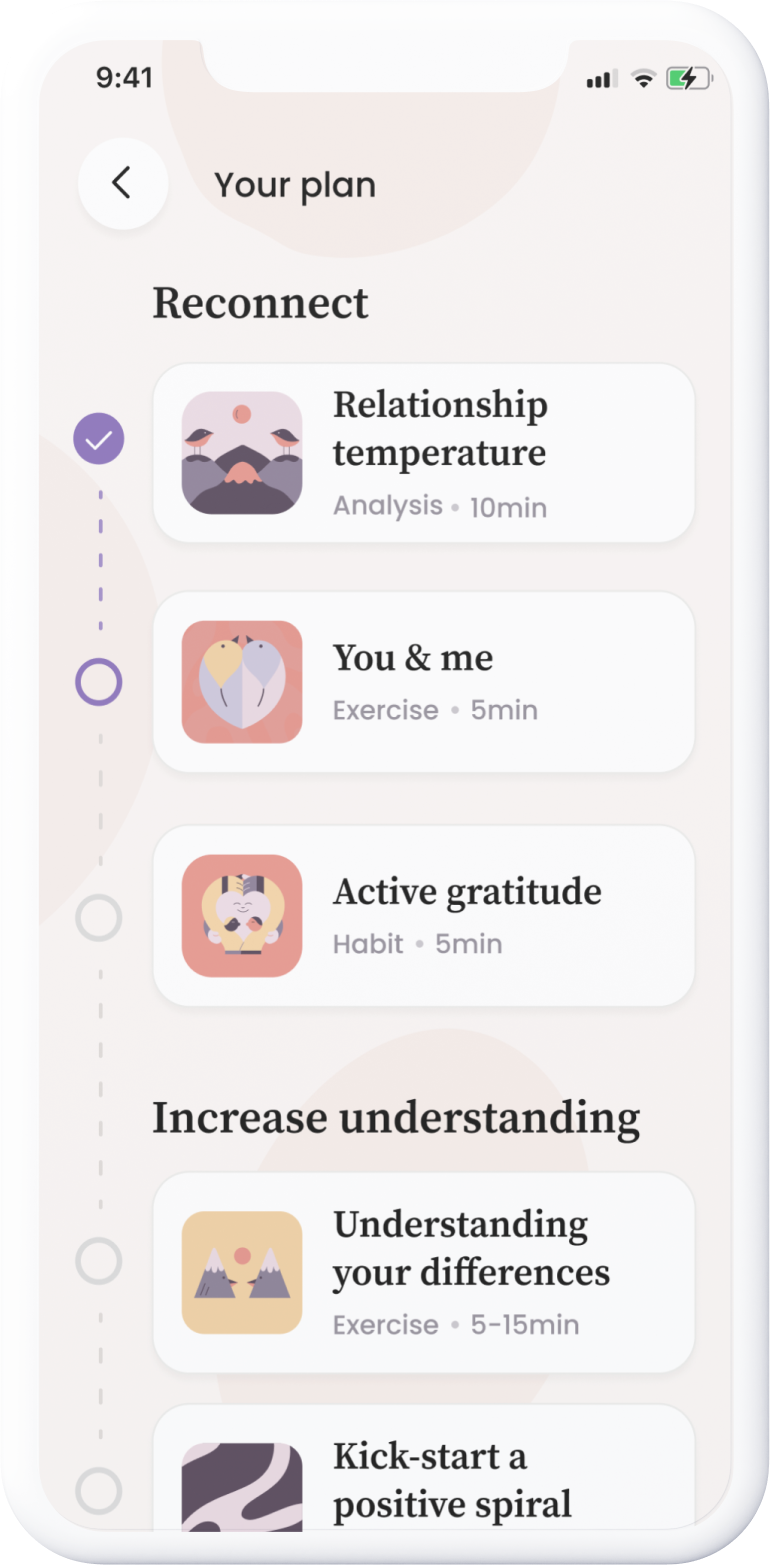
Overthinking in a relationship can feel like having a constant storm of thoughts swirling around in your head, sometimes so intensely that finding peace and clarity becomes challenging. It involves delving deep into every action, word, and silence in an attempt to understand what's really going on. Overthinking in a relationship can create a sense of insecurity and worry, where every action or lack thereof can be interpreted in multiple ways.
In a relationship, overthinking can manifest in various ways. It might involve overanalyzing every small gesture from your partner, doubting their love and intentions, or questioning every decision you make within the relationship. It can also play out scenarios in your head about potential problems or conflicts that haven't yet arisen.
How does overthinking affect your relationship?
Relationship overthinking can be detrimental as it often leads to exaggerated reactions, misunderstandings, and a lack of trust. This harmful habit creates distance between partners, hindering open and honest communication. Additionally, overthinkers may deny their own feelings and needs while excessively analysing their partner's behaviour.
Your partner can feel the significant effects of your relationship overthinking, impacting both you and the relationship. It generates stress and tension by constantly analysing situations and anticipating problems, causing discomfort for both parties. Communication barriers may arise as you hesitate to express thoughts and feelings openly with your partner, leading to misunderstandings and further strain.
Overthinking undermines trust, as constant questioning of intentions signals a lack of faith in the relationship, fostering emotional distance and decreasing attention to each other's needs. Conflicts often escalate due to misinterpretations fueled by relationship overthinking patterns, while self-esteem suffers. Your partner may feel burdened by the need for constant encouragement or navigating around your insecurities. This can potentially lead to anger and frustration over time. Addressing overthinking is essential for stronger and healthier communication, trust, and emotional connection in the relationship.
How to stop overthinking in a relationship
To manage overthinking in a relationship, it's essential to be aware of your thought patterns and actively work on trying to let go of control. This may involve taking care of yourself or techniques to calm the mind, as well as communicating openly and honestly with your partner about your feelings and needs. It’s also important to listen to your partner's feelings and needs. Here we will give you some tips on how to stop overthinking in a relationship.
1. Recognise your thought patterns
The first step in overcoming overthinking in a relationship is to become aware of when it's happening. Notice the repetitive thoughts and scenarios that play out in your mind regarding your relationship. Acknowledge that these thoughts are just thoughts, not necessarily the reality.
2. Take care of yourself
Take care of your physical, emotional, and mental well-being outside of your relationship. Engage in activities that bring you joy, relaxation, and fulfilment. Prioritise self-care practices such as exercise, hobbies, spending time with friends and family.
3. Challenge negative thoughts
When you catch yourself overthinking, challenge your thoughts. Remember, thoughts are merely thoughts and don't have to dictate your actions. You possess the ability to act in ways that are directly opposite to what your thoughts might suggest. By choosing actions that align with your values and goals, rather than being led by fleeting thoughts, you can steer your life in a more positive direction.
4. Focus on what you can control
Accept that there are certain things in your relationship that you can't control, such as your partner's thoughts or actions. Instead, focus on what you can control, like your own reactions, behaviours, and communication style. Establish boundaries with yourself regarding how much time and energy you're willing to devote to relationship overthinking. When intrusive thoughts arise, remind yourself of these boundaries and redirect your focus to more productive or fun activities.
5. Communicate openly
Bottling up your concerns or anxieties will only fuel your overthinking. Instead, practise open and honest communication with your partner. Share your feelings, concerns, and insecurities in a constructive and non-accusatory way. This can help alleviate misunderstandings and build trust. And as we mentioned earlier, make space for your partner's feelings and needs.
6. Focus on the positives
Cultivate gratitude and appreciation for the positive aspects of your relationship. Remind yourself of your partner's strengths, the happy memories you've shared, and the reasons why you're together. Shifting your focus to the positives can help against overthinking tendencies.
7. Seek professional help if needed
If overthinking significantly impacts your mental health or the relationship despite your efforts to manage it, don't hesitate to seek support from a therapist or counsellor. They can provide personalised strategies and guidance to help you navigate and overcome overthinking in your relationship.
By implementing these strategies and approaches, you can gradually reduce overthinking in your relationship and cultivate a greater peace of mind, trust, and connection with your partner. Remember that overcoming overthinking in a relationship takes time and effort.
Ally app
Ally is developed by us, licensed psychologists Clara Zelleroth and Helga Johnsson Wennerdal, to make the methods we use in couples therapy more accessible to everyone.
In the app, you get guidance in understanding relationship problems and working on resolving them, like communication problems. You will be recommended exercises, articles, and podcasts to strengthen your relationship. You can practise this alone or together with your partner. Sometimes it can be challenging to get your partner to participate in couples therapy online. Do you need some tips? Read more on how to motivate your partner.








